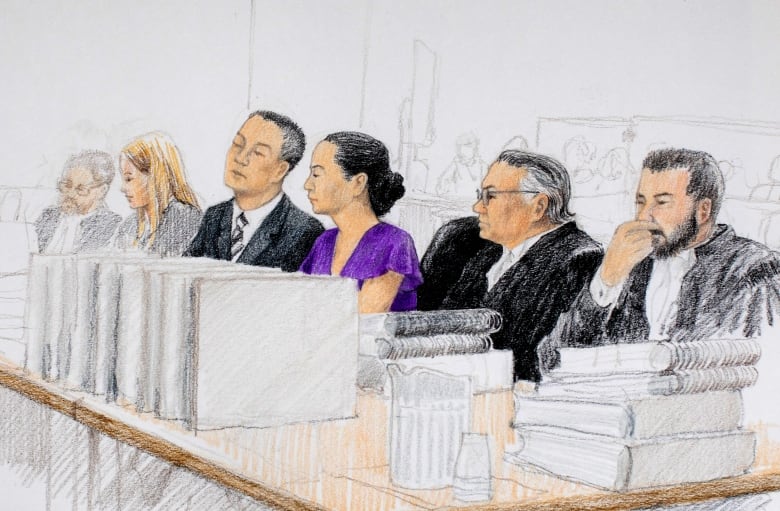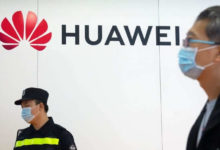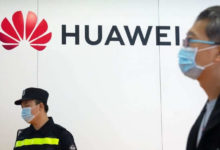First phase of Meng Wanzhou’s extradition hearing begins in Vancouver
More than a year after Meng Wanzhou’s arrest at Vancouver International Airport, the first formal phase of the Huawei executive’s extradition hearing begins Monday in B.C. Supreme Court.
American prosecutors want Meng sent to New York to face fraud charges related to allegations she deceived banks about Huawei’s control of a company accused of violating U.S. economic sanctions against Iran.
Over five days this week, Meng’s defence team and lawyers for Canada’s attorney general will debate the question of so-called double criminality in front of Associate Chief Justice Heather Holmes.
In order for Meng to be extradited, the Crown will have to convince the judge that Meng’s alleged conduct would be considered a crime in Canada had it occurred north of the border.
“This will be unusual in one sense, in that there aren’t that many precedents with respect to sanctions,” said Mo Vayeghan, a Vancouver criminal defence lawyer with an interest in extradition law.
Concerns over legal privilege
Meng, the chief financial officer of Huawei, a China-based telecommunications giant, was arrested on Dec. 1, 2018, after landing in Vancouver on a flight from Hong Kong. She was on a stopover en route to a conference in Argentina.
The 47-year-old made a brief appearance in front of Holmes on Friday for a conference with defence and Crown lawyers.

The Crown wanted to warn the judge that they expect some of the government agencies ordered to produce documents associated with Meng’s arrest to claim certain items contain privileged information.
Holmes has expressed a desire to keep the proceedings moving at a speedy pace, but the defence pointed out that legal arguments over privilege could see questions of national security raised.
The defence is seeking copies of communication between Canadian and American authorities around the time of Meng’s arrest to bolster an argument that she was the victim of a conspiracy to violate her rights.
Meng is currently living under house arrest in Vancouver after being released on $10 million bail in December 2018.
The terms of her bail allow her to move around the Lower Mainland under the supervision of a crew of around-the-clock security guards. Meng also wears a GPS monitoring bracelet on her left ankle.
‘A legitimate and valid argument’
Media from around the world have obtained court accreditation in advance of this week’s hearing.
Prosecutors claim that four banks including HSBC placed themselves at risk of violating U.S. sanctions by relying on Meng’s alleged lies about her company’s involvement with a firm Huawei claimed was a local partner in Iran. The prosecution claims the firm — Skycom — was actually a Huawei subsidiary.

Meng’s lawyers argue her alleged conduct would not be considered an offence had it occurred in Canada because Canada doesn’t have the same economic sanctions against Iran — as a result, the banks would have faced no risk of loss or prosecution.
But lawyers for the attorney general say the judge should consider the “essence” of Meng’s conduct — which they allege is misrepresentation and fraud.
Despite the lack of precedent, Vayeghan says the Crown has a good chance at success.
“That argument is a legitimate and valid argument,” he said.
“American prosecutors understand that the allegations they are making need to meet the test of dual criminality. They get this issue. That is why the United States prosecutors, in their indictment, they have worded their allegations broadly to include misrepresentations and fraudulent activity.”
Abuse of process?
If the defence succeeds in convincing Holmes the bar of double criminality has not been met, the extradition proceedings against Meng would come to an end.
But the court has scheduled a series of other hearings if necessary.
Those include a week of arguments in June in which the defence will claim that Meng’s rights were violated when she was detained by Canada Border Services Agency officers for three hours before her arrest by RCMP.
Meng’s lawyers will also argue that she is being used as a political pawn in the U.S. and China’s trade battle.
Her lawyers have cited comments from U.S. President Donald Trump, who told Reuters shortly after her arrest that he would intervene in the case if it would help get the U.S. a better trade deal with China.
Trump signed an initial trade deal with China last week, with no sign that he had heeded a suggestion from Prime Minister Justin Trudeau in December that any pact should deal with Meng and two Canadians who were detained in China shortly after her arrest.
Entrepreneur Michael Spavor and former diplomat Michael Kovrig were later formally arrested and now face accusations of spying in China, where they are incarcerated without access to lawyers or family.
China has also cut off Canadian canola and meat imports in the past year, lifting a ban on pork and beef in November.
CBC








Redes Sociais - Comentários